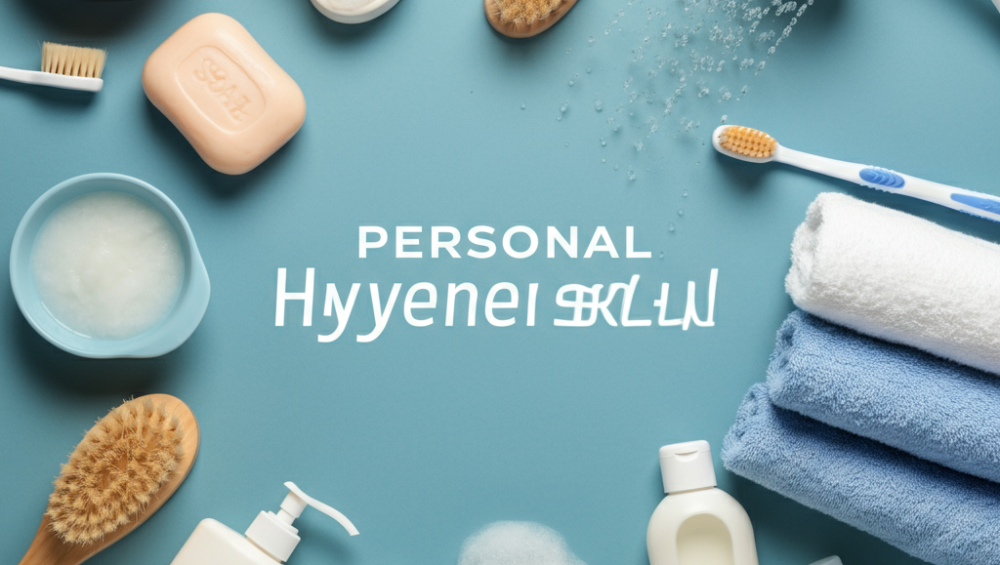The Importance of Personal Hygiene for a Healthy Lifestyle
Personal hygiene plays a crucial role in keeping us healthy and feeling confident. It’s about taking care of your body, ensuring it stays clean, and keeping germs at bay. Beyond just staying clean, good personal hygiene impacts both our physical health and emotional well-being, helping us lead happier and healthier lives. Let’s explore the different aspects of personal hygiene, why it’s essential, and how to build and maintain an effective routine to live a healthier lifestyle.
The Key Aspects of Personal Hygiene
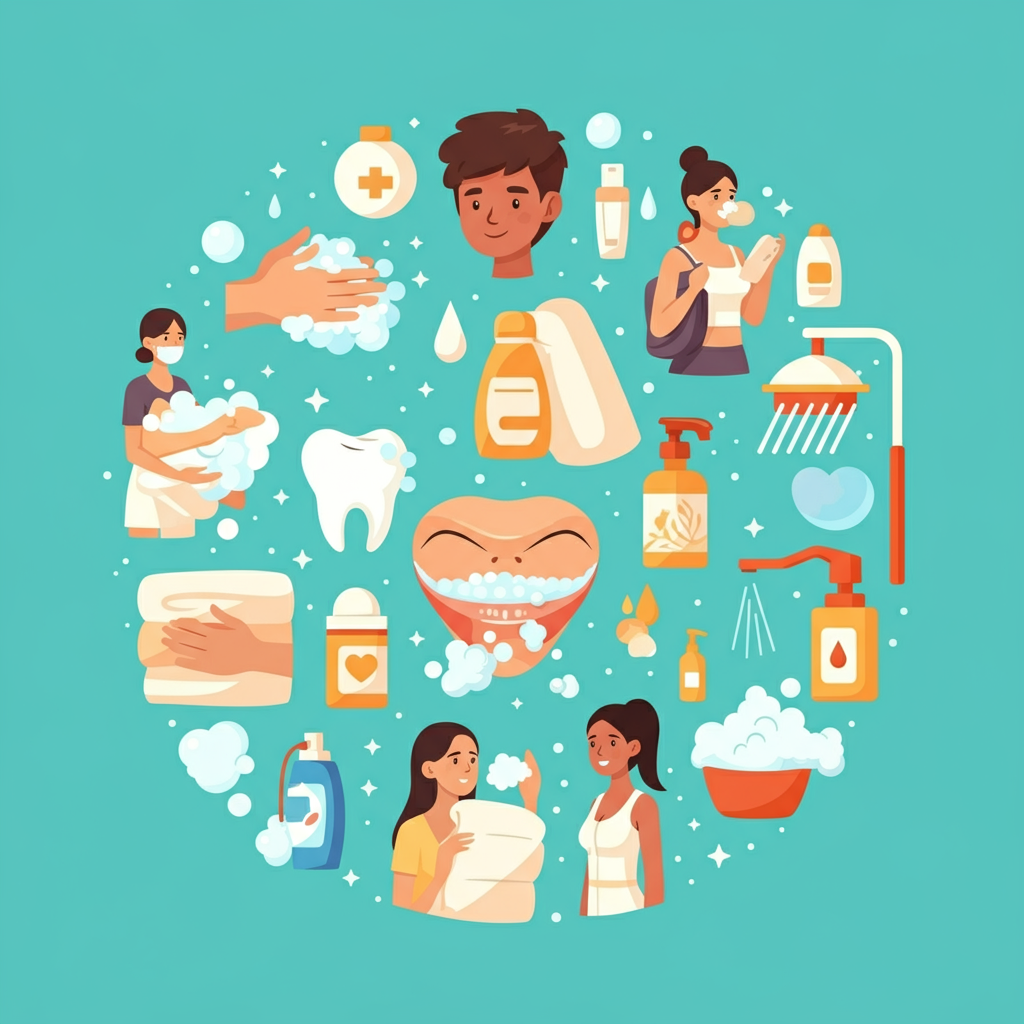
Maintaining personal hygiene involves various practices, each targeting different parts of the body. Here’s an overview of the essential aspects to focus on:
1. Hand Washing
Regular hand washing is one of the most effective ways to prevent the spread of germs and infections. Germs can easily transfer from surfaces to your hands and then into your body through touching your face, eating, or other daily activities. Wash your hands:
- After using the toilet
- Before and after eating or preparing food
- After coughing, sneezing, or blowing your nose
- After handling animals, trash, or dirty objects
Run your hands under clean water, rub them with soap for at least 20 seconds (including between fingers and under nails), and rinse well. Dry them with a clean towel.
2. Dental Hygiene
Taking care of your teeth goes beyond just having a bright smile. A proper dental hygiene routine helps prevent gum disease, cavities, and bad breath. Brush your teeth at least twice a day with fluoride toothpaste for two minutes each time. Don’t forget to floss daily to clean between your teeth where your toothbrush can’t reach.
3. Body Hygiene
Daily showers or baths help remove sweat, dirt, and dead skin cells. This practice not only freshens you up but also keeps bacteria that cause body odor at bay. Pay special attention to areas like underarms, groin, and feet, as they sweat more. Washing your hair regularly ensures it stays clean and oil-free.
4. Menstrual and Genital Hygiene
Good hygiene practices during menstruation and while caring for your genital area are critical to prevent infections and discomfort. Change sanitary products regularly, wash your hands before and after changing them, and keep the vulva clean using mild soap and water. For uncircumcised men, cleaning under the foreskin during showers is essential to maintain hygiene.
5. Nail Care
Fingernails and toenails can harbor bacteria and dirt, making them hotspots for germ spread. Keep your nails trimmed, scrub beneath them during hand washing, and use sanitized tools for maintenance to reduce infection risks.
Types of Hygiene
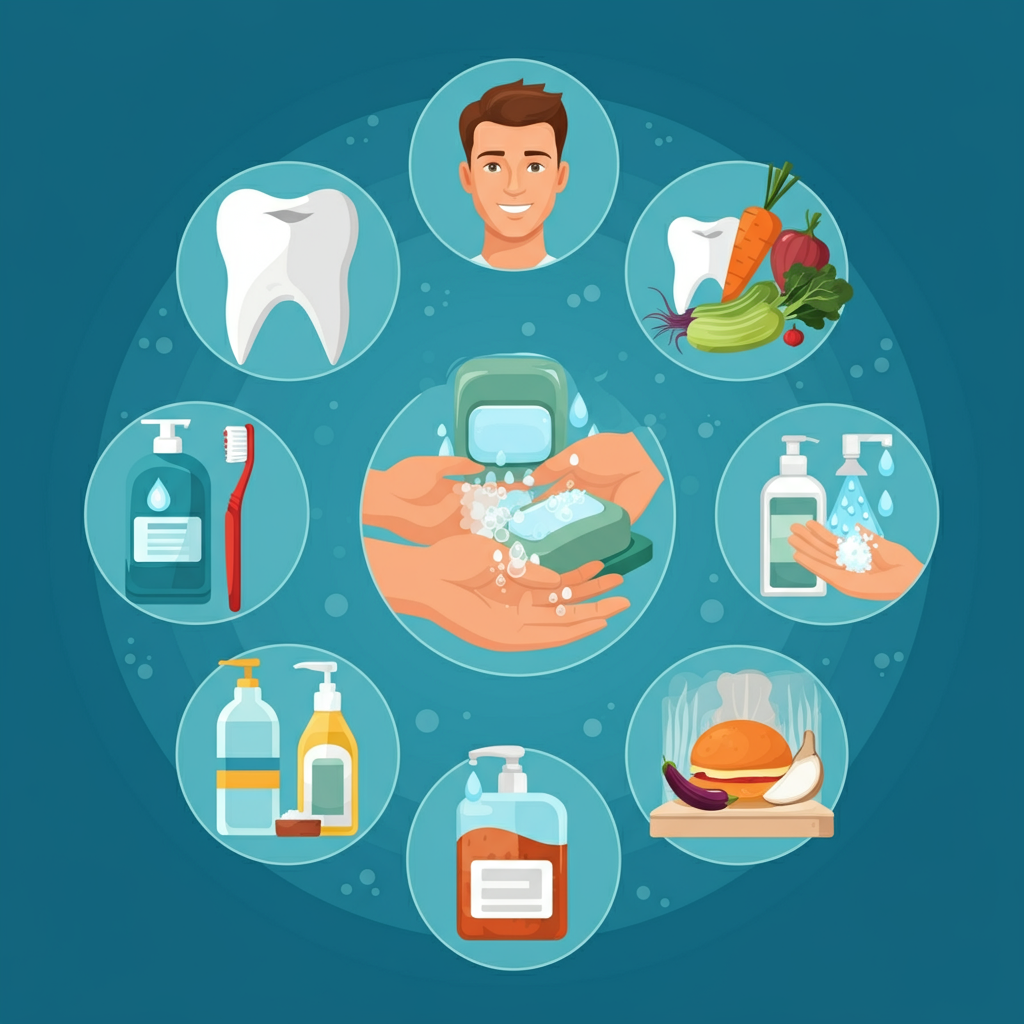
Personal hygiene encompasses a variety of practices, each with unique benefits. Here are the main types of hygiene to include in your daily routine:
- Personal Hygiene
This includes practices to keep your entire body clean—such as bathing, washing your hair, and wearing clean clothes to stay fresh and healthy. - Hand Hygiene
Washing your hands regularly helps reduce the spread of germs and protects you from illnesses like the flu or foodborne diseases. - Dental Hygiene
Maintaining oral cleanliness by brushing and flossing daily prevents tooth decay, gum disease, and bad breath. - Nail Hygiene
Keeping nails short and clean helps stop germs from spreading and reduces your risk of infection. - Menstrual Hygiene
Proper care during periods ensures comfort, health, and prevention of infections.
By addressing these categories, you can cover all aspects of a comprehensive hygiene routine.
Benefits of Maintaining Good Personal Hygiene
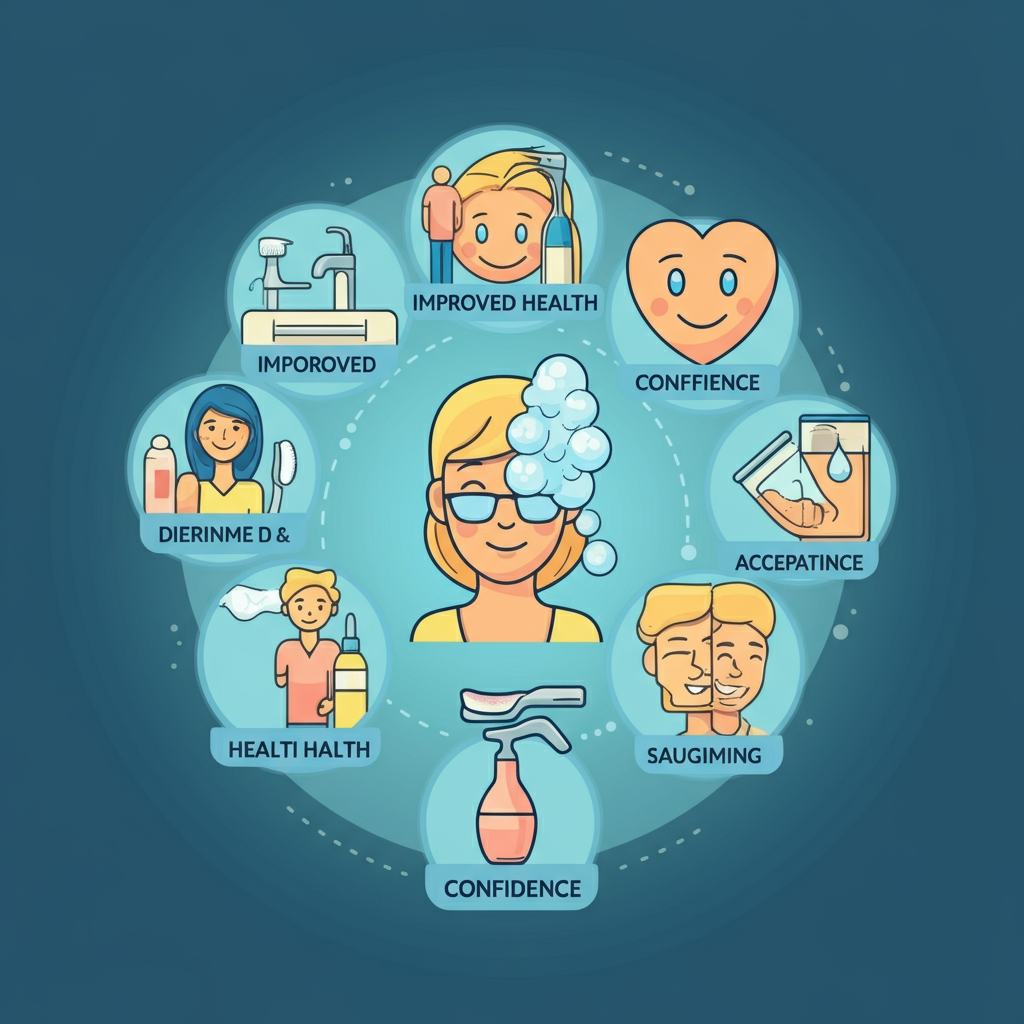
Practicing good personal hygiene offers numerous benefits, not just for your physical health but also for your mental well-being and social connections.
- Disease Prevention
Proper hygiene protects you from diseases caused by bacteria, viruses, and fungi, such as colds, flu, diarrhea, and athlete’s foot. Regular hand washing alone can significantly lower your chances of catching illnesses. - Improved Confidence
Feeling clean and fresh boosts self-esteem. When you smell good and look neat, you naturally feel more confident in social and professional settings. - Better Social Connections
Poor hygiene can cause unpleasant odors, bad breath, and other issues that may push others away. Maintaining cleanliness helps you form and sustain positive relationships. - Oral and Skin Health
Brushing and flossing prevent tooth decay and gum disease, while cleaning your skin reduces irritation, acne, and infections.
Consequences of Poor Personal Hygiene
Neglecting personal hygiene can lead to health issues and social problems. Here’s what you risk:
- Health Risks
Poor hygiene creates an inviting environment for germs to multiply. You might face problems like respiratory infections, skin conditions (e.g., scabies or ringworm), tooth decay, or even more severe diseases such as COVID-19 and gastroenteritis. - Social Isolation
People may avoid those with poor hygiene due to bad odors or an unkempt appearance, which can lead to feelings of loneliness and lower self-esteem. - Workplace Impact
Poor personal hygiene can affect your professional opportunities, especially in roles where cleanliness is crucial, such as food service or health care.
Practical Tips for Building a Hygiene Routine
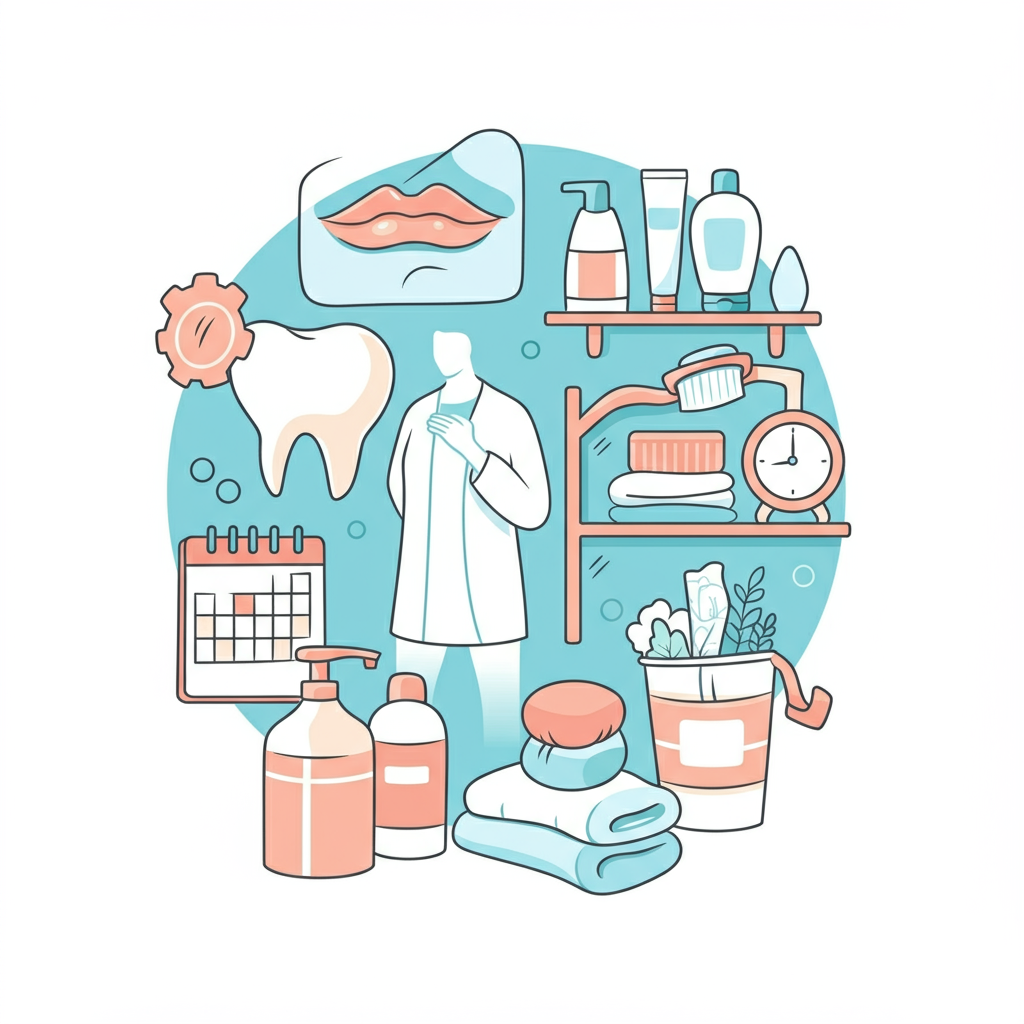
To make good hygiene a lifelong habit, start small and remain consistent. Here are some practical tips:
- Start with Basics
Begin by focusing on one area, such as hand washing, and develop it into a habit before adding others like dental or body hygiene. - Set Reminders
Use alarms or sticky notes to remind yourself to brush your teeth, wash your hands, or take showers regularly. - Create a Routine
Make hygiene tasks part of your daily schedule—brush your teeth after waking up and before bed, shower after workouts, and trim nails weekly. - Use Pleasant Products
Invest in toiletries that you like. A refreshing-smelling body wash or toothpaste can make your routine more enjoyable. - Get the Family Involved
Teach kids early on about personal hygiene. Turn it into a bonding activity and use rewards to encourage their involvement.

